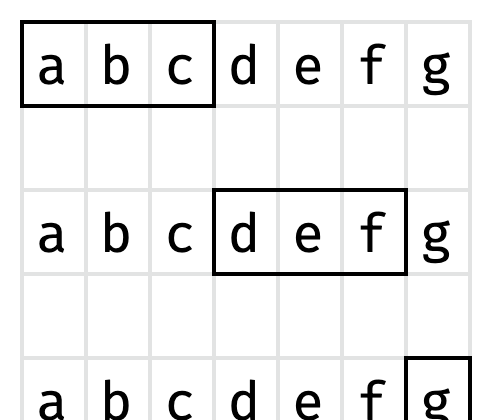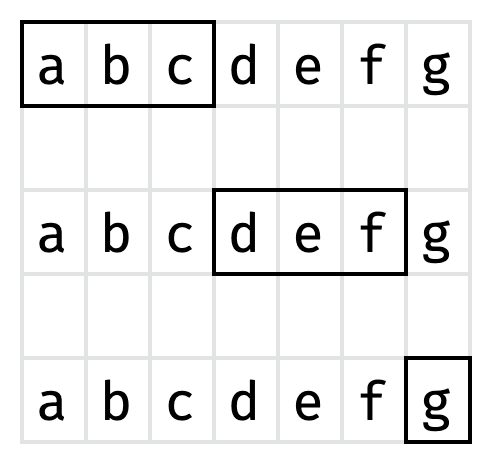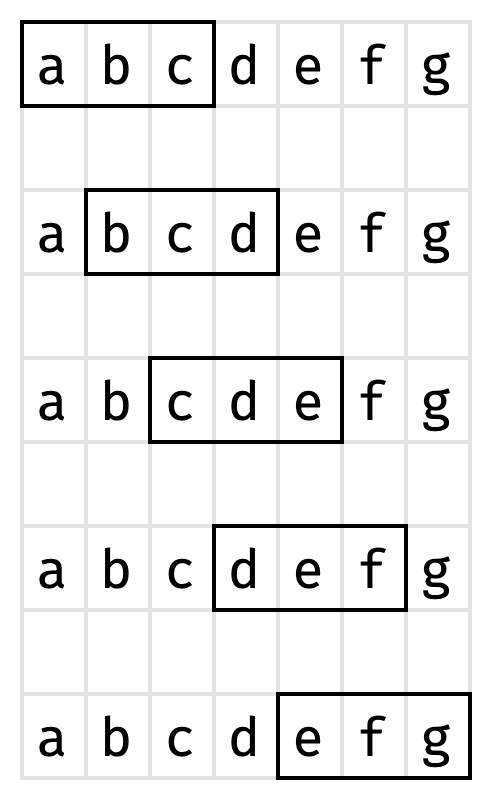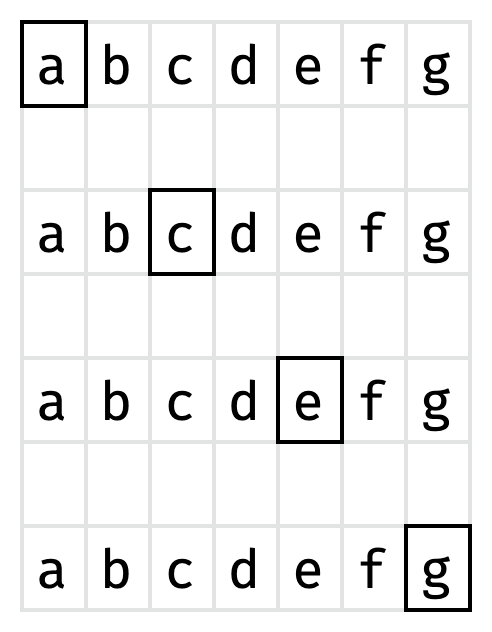std.mem.window has been merged!
std.mem.split is very useful when there is a known delimiter, but there is no easy way to split a buffer every N items.
Manually implementing this for every 3 items looks like:
const buffer = "abcdefg";
var i: usize = 0;
const size = 3;
while (size < buffer.len) : (i += size) {
const end = @min(i + size, buffer.len);
const slice = buffer[i..end];
...slice is "abc", "def", "g"
}
std.mem.window simplifies that to:
const buffer = "abcdefg";
var it = std.mem.window(u8, buffer, 3, 3);
while (it.next()) |slice| {
...slice is "abc", "def", "g"
}
But there's more! This isn't named splitEvery as std.mem.window is more powerful. It takes in both a size and advance parameter. When they are equal, it is the same as splitEvery.
By choosing an advance smaller than size we get a sliding window:
const buffer = "abcdefg";
var it = std.mem.window(u8, buffer, 3, 1);
while (it.next()) |slice| {
...slice is "abc", "bcd", "cde", "def", "efg"
}
Going the other way, we can pick out every Nth element. For example, if we only want the items with an even index:
const buffer = "abcdefg";
var it = std.mem.window(u8, buffer, 1, 2);
while (it.next()) |slice| {
...slice is "a", "c", "e", "g"
}










Latest comments (4)
linux zig 0.10.0 error: root struct of file 'mem' has no member named 'window'
var it = std.mem.window(u8, buffer, 1, 1);
const buffer = "àéç";
var it = std.mem.window(u8, buffer, 1, 1);
while (it.next()) |slice| {
std.debug.print("value:{any}",.{slice});
}
Only works with the master version,
on the other hand does not support UTF8
only american ascii 128
too bad, because we are not far from Rune de nim-lang
It's a low level memory operation. It's just a sliding window along an array in memory. It's presented in examples as a string tool (as [_]const u8 are the easiest array to create in a small example snippet), but it's really not. Low level memory operations are useless when dealing with real world strings (except that they may be blocks to build higher-level ops).
What you want is github.com/JakubSzark/zig-string that does exactly that.
zig-string isn't bad, but it's missing some stuff.
hello, it works with UTF8 ex: here éçà...???